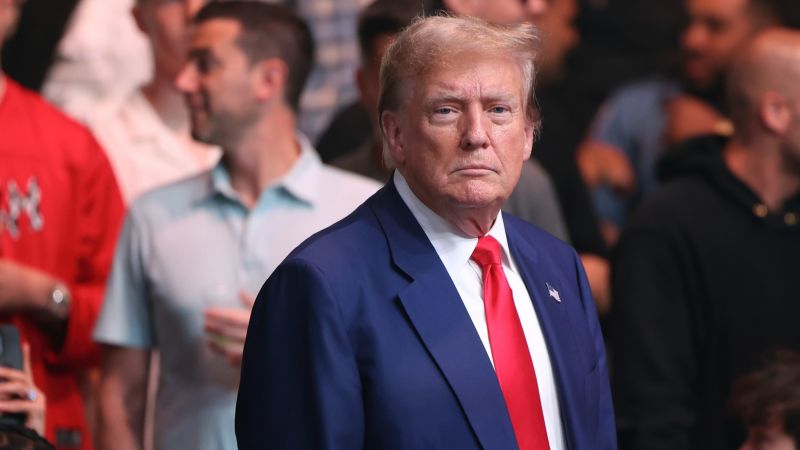Former President Donald Trump recently claimed during an interview that he did not call for the imprisonment of his Democratic opponent in the 2016 presidential election, Hillary Clinton, despite evidence to the contrary. Trump, who is facing the possibility of a prison sentence after being convicted on multiple felony counts, stated that he decided against imprisoning Clinton because it would have been a “terrible thing.” However, Trump’s claim that he did not call for Clinton to be locked up is inaccurate, as he had used the phrase “lock her up” on multiple occasions during his campaign rallies in 2016.
Throughout his campaign in 2016, Trump often criticized Clinton’s email practices as Secretary of State, prompting his supporters to chant “lock her up” at rallies. Trump would sometimes pause to allow these chants to continue and on other occasions, he explicitly repeated the words himself, stating that Clinton should be in jail for what she had done. He continued to use this rhetoric even after winning the election, with calls to “lock her up” resurfacing during his 2020 campaign for reelection.
Trump’s calls for Clinton’s imprisonment were not limited to the phrase “lock her up.” He explicitly stated in speeches and debates that Clinton should go to jail, emphasizing these sentiments to his supporters. Despite initially softening his rhetoric after the election, Trump returned to advocating for Clinton’s imprisonment during his 2020 rallies, even extending the calls to lock up other political figures such as the Biden family. These repeated statements demonstrate Trump’s consistent promotion of locking up his political opponents, even after becoming President.
Trump’s false denial of calling for Clinton to be locked up raises questions about his credibility and consistency in regards to his rhetoric and statements. Despite the evidence proving otherwise, Trump continues to deny that he ever used the phrase “lock her up” in reference to Clinton. His history of using this rhetoric during his campaign and subsequent rallies highlights a pattern of behavior in which he promotes the imprisonment of his political adversaries, regardless of the facts or circumstances.
The controversy surrounding Trump’s calls to lock up Hillary Clinton underscores the divisive nature of his political tactics and rhetoric. By repeatedly using this phrase and similar statements, Trump has fueled animosity and polarization among his supporters and opponents. This pattern of behavior is indicative of the larger issue of political polarization in the United States, where leaders use inflammatory language to rally their base and demonize their opponents.
In conclusion, Trump’s false denial of calling for Hillary Clinton to be locked up is just one example of his divisive rhetoric and political tactics. Despite the evidence to the contrary, Trump continues to deny that he used the phrase “lock her up” during his campaign and rallies. This pattern of behavior underscores the deep political divisions in the country and the role that inflammatory language plays in exacerbating these tensions. As Trump faces potential legal consequences, his past statements and actions will continue to be scrutinized, further highlighting the need for accountability and transparency in political discourse.


